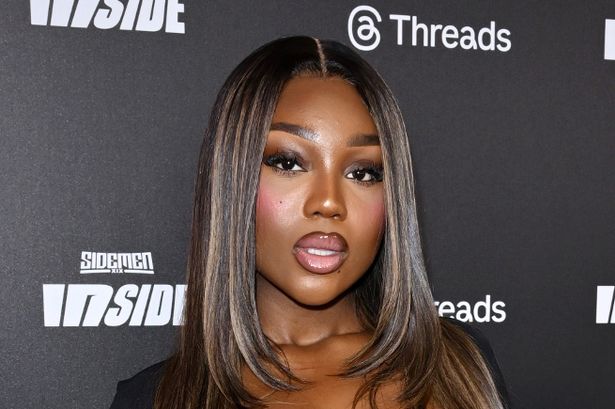Whitney Adebayo, a host of Netflix’s Inside, has spoken out against recent racist outbursts, but have we learned anything from the time of #BeKind, or has mercy not been redeemed for Black celebrities?
Former Love Island star Whitney Adebayo recently spoke out against racist trolls after her appearance on The Sidemen’s Netflix reality series Inside. Whitney didn’t hold back as she responded to the “evil, hatred and pure racism” she received from viewers, and unfortunately, her experience proves that the reality TV landscape, for Black women in particular, hasn’t changed.
Whitney isn’t the first Black woman to be faced with racism after a TV appearance. YouTuber and presenter Nella Rose, fellow Love Island alum Kaz Kwami and ITV broadcaster and Loose Women panellist Charlene White have all received online abuse in the form of rampant racism flung into their direct messages.
Editing and plotlines are among the factors that can increase the amount of criticism you receive when you’re thrust into the spotlight. After all, you can’t please everyone, so it’s important to be polite.
Whitney acknowledges this in her post, saying, “I’ve had a variety of reactions, some positive and some negative. However, racism is a reality that I’ve encountered more than anything. Although I am aware of the impact of being in the spotlight, what I’ve gone through in the last few days transcends that criticism.
READ MORE: Sidemen Inside star Whitney Adebayo’s life off-screen including relationship status
“This evil, hatred, and pure racism cannot be tolerated,” the statement read. The hateful tweets, the death threats, and the unfair treatment I’ve received are not only offensive, but they also serve as reminders that racism is still very much ingrained in British culture, she continued. This isn’t just about a TV show; it’s about how society might respond to women like me, who might not fit a certain stereotype of being cute and mute. Thank you for supporting me.
Your support and love sustain my soul. I want to remind those who have tried to demonize me that I don’t have a hatred for myself. It only serves to strengthen my resolve to grow and remain unapologetically myself. Although I had the best time, my journey has come to an end. I’m sure you enjoyed yourself, whether you liked or hated me. You’re welcome, x.
Just two years earlier, Loose Women panellist Judi Love hit back at racist trolls who slammed Nella Rose ‘s appearance in ITV’s I’m A Celebrity… Get Me Out Of Here. She wrote in her OK! column at the time: “The controversy around Nella Rose has been difficult, and it’s painful to read the disgusting racist and body-shaming comments online. It’s crazy that people forget she’s a young woman immersed in one of the biggest reality celebrity shows in the UK.”
Then Kaz Kwami, who appeared on Love Island in 2021, revealed that she was also subject to “vulgar racist abuse”. Her family, who looked after her social media accounts while she was in the villa, shared a statement at the time, writing: “We understand that a lot of you love watching the show and that people will have differing opinions. However, this does not excuse the vulgar racist abuse we have been receiving on her account!”
Worryingly, these are only three illustrations of how many exist. Some viewers seem to struggle with accepting the consequences of sending hate while stifling their online presence, and the fact that their messages are read by real people who can have an impact. Has the #BeKind era taught us anything, or is there no mercy left for Black celebrities?
Whitney’s statement and those of other Black women who have spoken out against racist hate demonstrate their bravery, despite the fact that it shouldn’t be required. When will Black women be able to exist in these circumstances without having to be “strong” or “brave”?
Source: Mirror







Leave a Reply